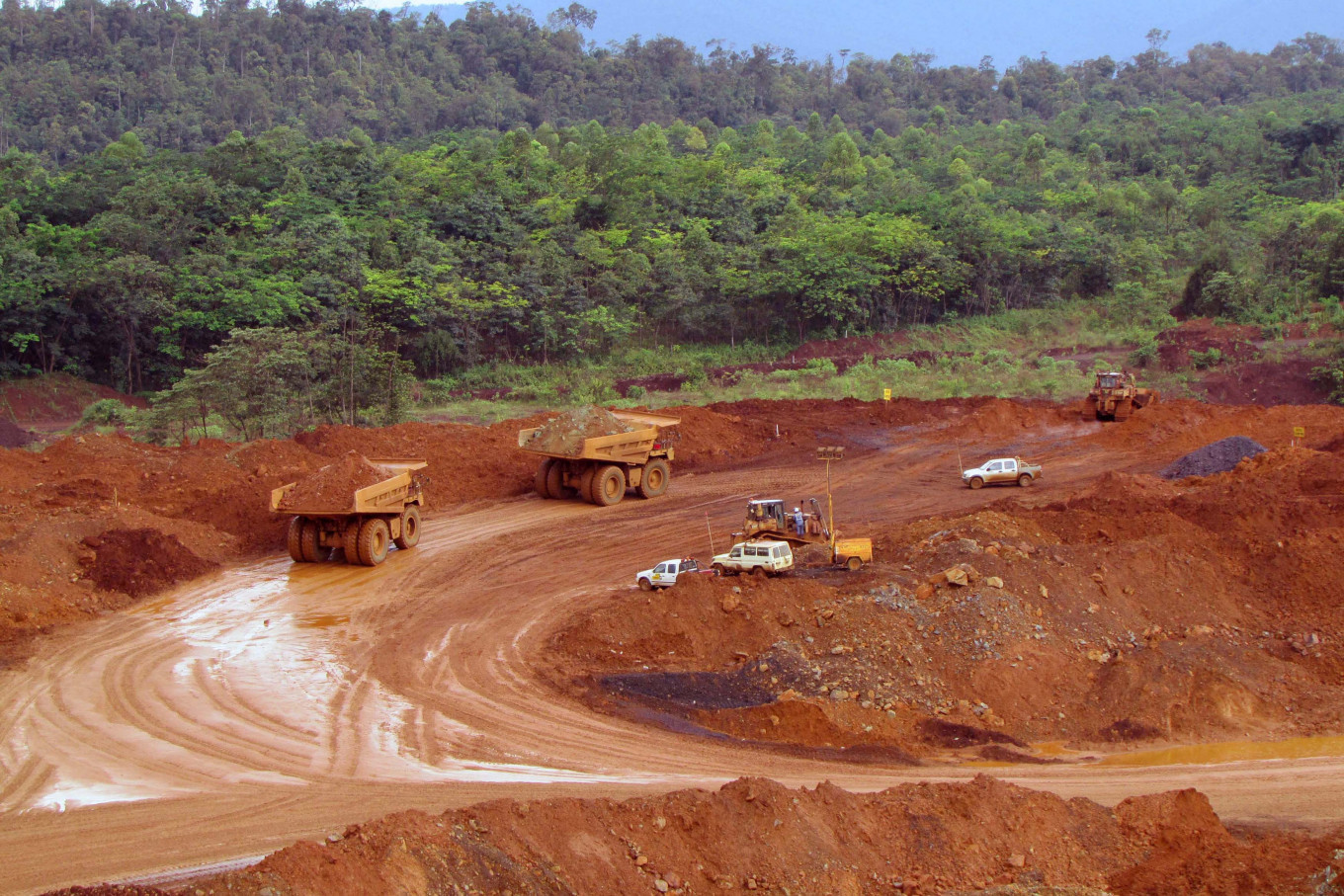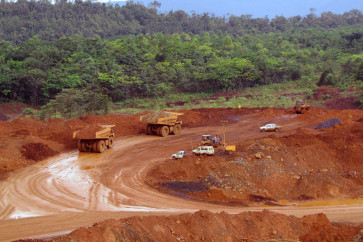Popular Reads
Top Results
Can't find what you're looking for?
View all search resultsPopular Reads
Top Results
Can't find what you're looking for?
View all search resultsAdvancing Indonesia’s interest amid a race for a ‘club’ mineral trading
Countries like the United States and the European Union consider a solution, such as forming a club, to reduce their dependency on imported minerals from disruption-prone suppliers, particularly China.
Change text size
Gift Premium Articles
to Anyone
 Trucks of nickel mining company PT Vale Indonesia Tbk drive near a forest rehabilitation area, which is part of the Brazilian company's commitment to protect the environment. The area is mined for three years, then will be re-greened. Recently, PT Vale Indonesia managed around 10,000 hectares of its concession area out of a total of 118,387 ha in Sorowako, South Sulawesi. (JP/Ruslan Sangadji)
Trucks of nickel mining company PT Vale Indonesia Tbk drive near a forest rehabilitation area, which is part of the Brazilian company's commitment to protect the environment. The area is mined for three years, then will be re-greened. Recently, PT Vale Indonesia managed around 10,000 hectares of its concession area out of a total of 118,387 ha in Sorowako, South Sulawesi. (JP/Ruslan Sangadji)
E
arlier this month, the United States and the European Union reportedly planned to establish a “critical-minerals club.” This club will serve as an alliance of countries relying on an uninterrupted supply of materials needed for the energy transition into renewable. Late last year, Investment Minister Bahlil Lahadalia revealed the country’s plan to initiate an Organization of Petroleum Exporting Countries (OPEC)-like cartel where producing countries could agree to control the global supply and prices of minerals required for green technology.
As much as it is tempting to focus on the race and rivalries between consumers and producers of the minerals, the more important question is what these clubs and cartels are all about. How could Indonesia navigate the race or rivalries?
Although details are still unclear, the plan to establish the so-called critical-minerals club highlights a significant tilt in the global trade regime. The idea of a club has been around for several years and was initially proposed to solve the free-riding problem that has caused failures in international climate agreements.
A club is a voluntary group where members share the costs of providing international public goods and impose penalties on non-participants. In the case of trade, international public goods refer to free trade while penalties can be tariffs or other trade barriers.
In this fashion, a club is more strategic than a cartel that aims to restrict competition by adjusting production quotas and swinging prices. A club still aims at maintaining the long-established international principle of free trade to the extent that restrictions will be imposed on free riders.
Free trade has long been one of the principles of international trade secured under the General Agreement on Tariffs and Trade (GATT), which was established in 1947 and transformed into the World Trade Organization (WTO) in 1995. The GATT and WTO have successfully promoted the reduction or elimination of tariff barriers and consequently contributed to economic globalization.
However, the currently vacant appellate body that serves as a dispute settlement mechanism in the WTO, a series of failed negotiations, and rising protectionism have challenged the institutions’ legitimacy.


















